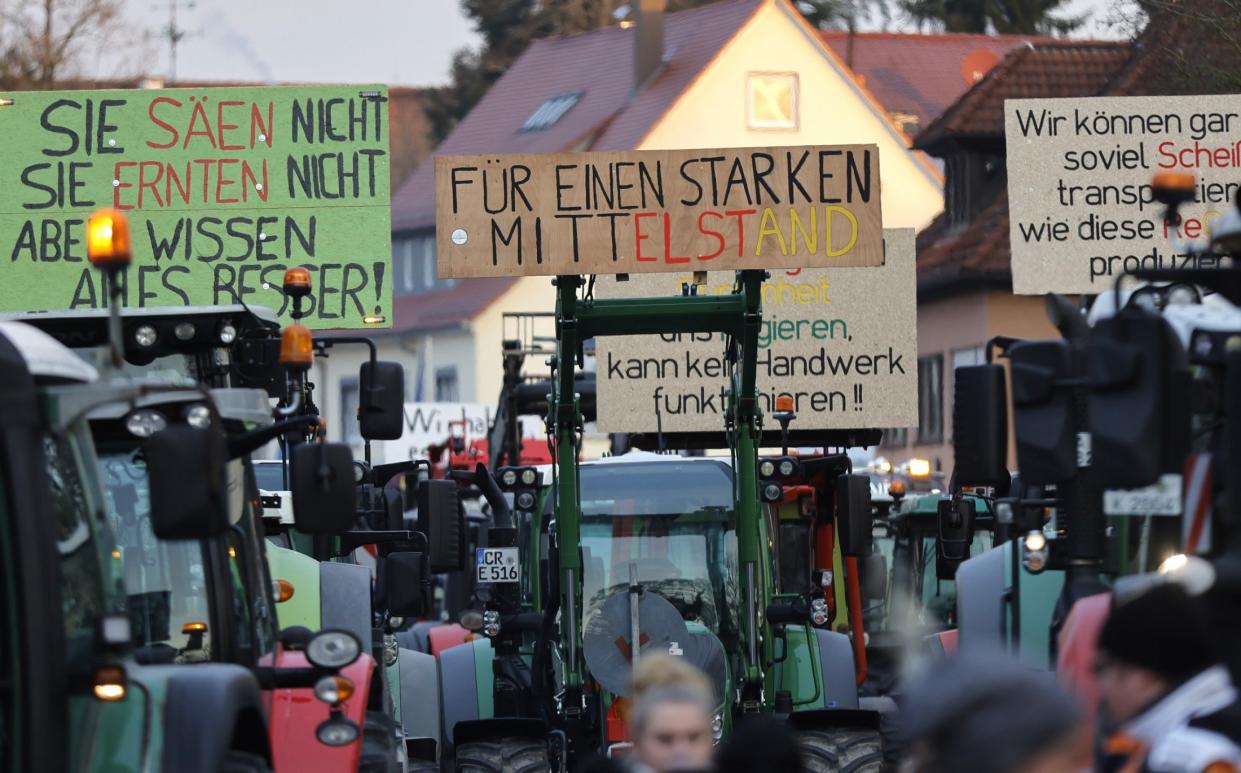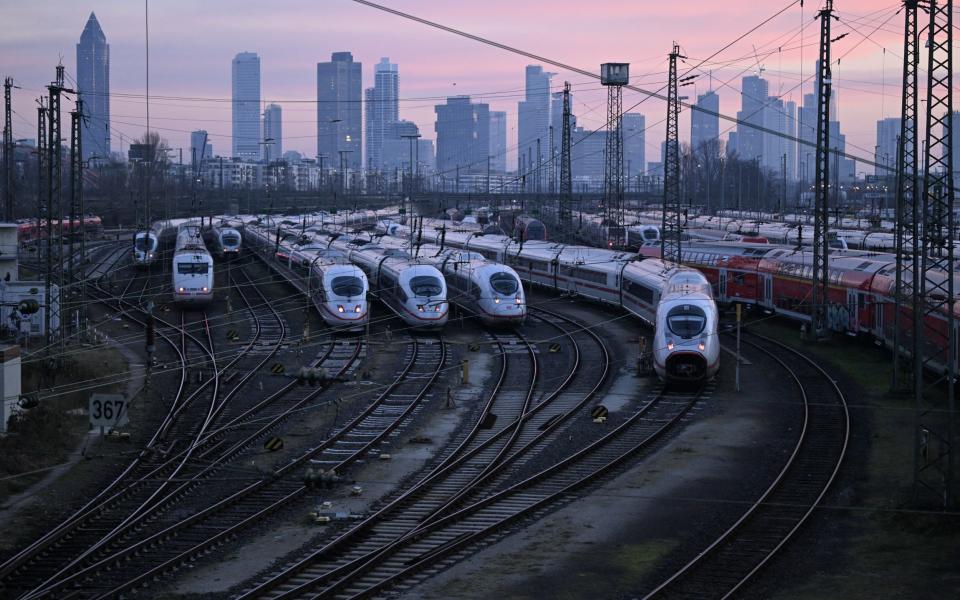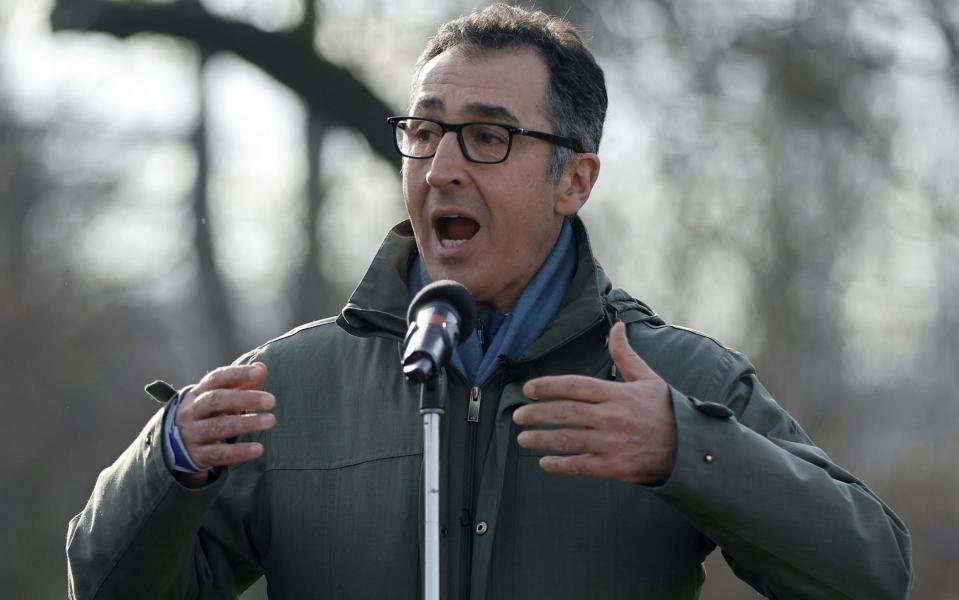Germany brought to its knees by train strikes and farmers’ road blocks

- Oops!Something went wrong.Please try again later.
Germany’s transport system was on the brink of collapse on Wednesday as train drivers went on strike, forcing commuters onto motorways blocked by mass protests by farmers.
On the third day of the German farming industry’s “week of courage”, in which thousands of tractors have blocked motorways and city centres, train drivers began a strike over pay and working conditions.
The 64-hour drivers’ strike has paralysed city metros and shut down 80 per cent of long-distance rail networks, with the tabloid Bild warning of the risk of a “German transport collapse”.
Rail commuters were forced to find a way to work on the roads, but many are also being blocked by farmers who are protesting across Germany against the phasing out of diesel subsidies.
Lorry drivers are already on strike and doctors were threatening to take the same step earlier this week, piling pressure onto Olaf Scholz, the chancellor, and his embattled government.

As tensions rose in a country generally known for being the most stable in Europe, Cem Ozdemir, the agriculture minister, warned of a “dangerous” divide emerging in German society.
“People in rural areas feel left behind and they worry that politics is increasingly dominated by city-dwellers,” he said on Wednesday. “It’s a dangerous divide which could lead to conditions like in the United States, where people don’t speak to each other or believe each other because they accuse each other of causing all the evil in the world.”
Also on Wednesday, Joachim Rukwied, the president of the German farmers’ association, launched a tirade against officials in the “Berlin bubble”, accusing them of being out of touch with normal Germans.
The government needed to listen to “those who keep Germany running through their daily work, including farmers”, he said, before claiming that the government was being advised by people “who have never worked and never sweated”.
While the German government may be able to resolve the train drivers’ strike, the farming protests pose a much bigger headache. Mr Scholz has already tried to compromise with the farmers by abandoning an earlier plan to cut certain tax breaks. He also vowed to gradually phase out diesel subsidies over several years instead of cutting them now.
But this has failed to mollify farmers, who are set to continue their tractor protests all week despite the government ruling out further compromises.

The presence of far-Right and neo-Nazi groups at certain farmers’ protests have also stoked fears that the demonstrations could be hijacked by anti-government extremists.
In December, the Scholz government said it needed to cut farmers’ subsidies to help fill an enormous hole in the German budget, which was created by a court decision that banned the use of pandemic-era funds on future projects.
There is intense debate in Germany as to whether raising taxes and cutting subsidies is the right way forward. An alternative solution would be extending the suspension of the so-called debt brake in Germany, a constitutional limit on budget deficits.
However, that move is strongly opposed by a key coalition partner of Mr Scholz – Christian Lindner, his economy minister, of the economically liberal FDP party.

